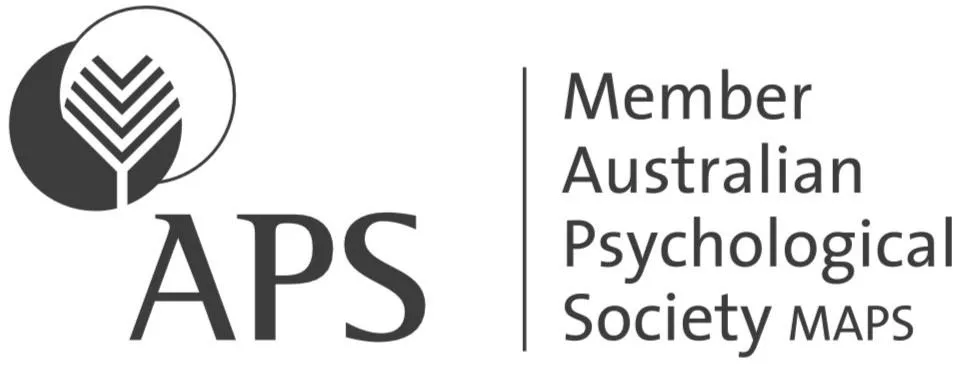Book a session
Please choose a date and time below that suits you for your appointment.
After receiving your payment you will be sent an email with the Zoom link and a receipt.
Questions about our
Services?
Medicare rebate or private medical insurance claim for psychological services?
Most clients prefer to book directly with with our counsellors. No referral is required to access this counselling service.
During the first session, you can discuss the benefits of seeking a Mental Health Care Plan from your GP should you wish to pursue this path moving forward and you are booking with a registered psychologist. If you require a Mental Health Care Plan (MHCP) you will need to make a long appointment with your GP and they will make an assessment about whether you are eligible.
All of our registered psychologists are registered with Medicare and you will need a referral from a GP if you wish to claim Medicare rebates. Under the Better Access program you can receive a partial rebate for up to 10 individual sessions in a calendar year.
All our psychologists are registered with private health insurance providers in Australia. If you have private health insurance, you may be eligible to claim rebates for psychological sessions. The level of cover and any applicable waiting periods vary between providers and depends on your extras cover policy.
To find out if you are eligible and/or how much funding you are entitled to claim for psychological sessions, please contact your private health insurance.
Where applicable, some of our psychologists also see clients who are self-managed or plan-managed through NDIS at the current rate for NDIS.
Cancellation or missed sessions policy
Given the nature of our support services, last minute cancellations are costly, and it means that other clients may miss out on receiving the required support. For cancellations within 48 hours of the scheduled appointment there is a $65 part fee payment. For less than 24 hours cancellation notice or a non-show, the full session fee will need to be charged. These fees are refunded however if the session can be filled at the last minute.
How are your counselling and coaching sessions held?
We know our clients are time poor. For your convenience, all our counselling or coaching sessions are now available online via Zoom.
You can book your appointment online via this website.
Zoom allows us to connect with you via video and audio. It just requires you to click on a link to join. You can sign up to Zoom to create a FREE account and download the Zoom Client for Meetings. Zoom does require internet connections.
After you book you will be sent a reminder about the booking and emailed a link to connect at the booked time. You are also likely to be sent a client information form to complete prior to your initial consultation to enable our Counsellors and Coaches to be better prepared for your first meeting.
If you are unable to make any of the dates available, please email us to see if we can accommodate an alternate time for you: [email protected]
If you live in Brisbane or the Gold Coast, Queensland, we are available for face to face consultations. Please email us at [email protected] if you would like to arrange an in person appointment.

Webinars - how they are received, transcripts and worksheets
Our clients have requested webinars and programs for years that allow them to access excellent support and guidance and a toolkit they can use to move forward. Many of our clients are time poor so these webinars give them the chance to get the support and resources in their time. The webinars can be purchased on line. The link, transcript and workbooks/worksheets and videos (where applicable)are then sent with the email. Sign up to our email today to receive updates on all our webinars, programs and resources.

Catch up on our latest blogs

Beware
10 Biggest Red Flags to Watch out for in Relationships
Dating someone new can be such a fun time in your life. Ideally, getting to know someone can be really exciting and establishing intimacy feels natural and easy. But for some people, as the relationship develops, you may start to notice little things that feel really “off”.
These uncomfortable behaviors—often called red flags—may start out small but can hint at future problems, so it’s important not to just ignore them or start to justify them. Everyone deserves to be in a relationship where they feel safe, respected, and valued — and that includes you.
What are red flags in a relationship?
Red flags in a relationship are warning signs that something might be wrong. Certain behaviors, actions, or attitudes might indicate a relationship is unhealthy or even harmful. They can be obvious, like physical abuse, or even subtle, like constant criticism.
Pay attention to these signals, because seeing unhealthy patterns before they become deeply ingrained can help you make choices that may prevent pain down the line.
Knowing what red flags to look out for can also help you make better choices about your relationship. You can decide whether to work on the issues with your partner or to end the relationship. No matter what you do, recognizing these signs can help you set boundaries and build healthier relationships in general. You’ll be able to recognize what's unacceptable so you can seek out partners who make you feel respected and valued.
10 biggest red flags
Recognizing red flags in a relationship is critical for your emotional and physical wellbeing, here are 10 of the most common ones to look out for.
1. They exhibit controlling behavior
This occurs when one partner tries to be in charge of the other’s actions, decisions, or interactions with others.
Exercising control over your social circle: Dictating your friendships, or placing limits on family visits
Monitoring your activities including checking your phone, emails or social media accounts without your permission
Making decisions for your about your life, for example your study, your courses, job, how you spend your free time or
Financially controlling you so that you lose your financial independence and access to your own money such as not letting you work, making you transfer your income to the other persons account or paying off their debts for them, the always ask for a 'loan' which is never repaid, they monitor your spending and give you an allowance.
2. Dishonesty, sneakiness and stonewalling
When communication isn’t open and honest and when your partner refuses to talk about certain topics, that could be a red flag.
They refuse to discuss really important topics which impact you too, avoid conversations about feelings, future plans or problems in the relationship
They often give you the silent treatment, withdraw communication to punish or manipuate you, ghost you for periods of time to make you feel anxious
They dont value or respect that you have an opinion or belittle your input.
3. You receive constant criticism from them
Notice if your partner frequently puts you down, makes you feel like crap about yourself, or undermines your confidence.
They make negative comments about your intelligence, looks, appearance, clothing choices.
They belitle your achievements downplaying or dismissing your successes and accomplishments
4. You’ve experienced abuse
Physical, mental and emotional harm a serious red flag that should never be ignored. For instance,
Harming you or threatening to harm you physically - including hitting, slapping, pushing, choking or any other form of physical violence
Stalking and monitoring you
Using guilt, fear or intimidation to control you
Yelling, name calling, defaming you
Sexually abusing you.
5. They have anger management issues
An inability to control anger, aggressive behaviour, which may be harmful and frightening.
Having frequent outburts, exploding in anger over minor issues or high conflict about things
Engaging in destructive behaviour such as throwing or breaking things
Making threats to harm you, your children, family, pets, your property
6. You’ve experienced gaslighting
This occurs when an abuser makes you doubt your own reality or feelings. It can include:
Denying things that happened causing you to question your memory or insisting events or converstations never took place which can make you feel unsure about your recollections or perceptions. You feel like you might "be going crazy" or "losing your memory."
Blaming you for your actions by shifting responsibilty for bad behaviour onto you and guilt tripping you into believing you are to blame for something you are not responsible for.
7. They display secretive behavior or keep things from you
Hiding things from you or being overly private about certain aspects of their life can be a sign that something is wrong. This might include:
Not sharing their phone or computer or being overly sensitive, secretive or protective of their digital devices.
Being vague about their whereabouts, giving unclear answers about where they have been or what they are doing.
Keeping financial secrets including hiding money, borrowing money from you, running up debts including gambling debts, in your name or jointly, or making large purchases from joint funds without your prior consent.
8. They have a substance abuse issue
Substance abuse can severely impact your relationship or your partner’s ability to function normally. Especially if:
They are intoxicated regularly - drunk, high or under the influence more than being sober
Spending more time choosing substances than spending quality time with you
Illegal drugs are being delivered or stored in you home or property.
Spending excessive joint money on supporting their addiction.
9. They’re dishonest
Dishonest behaviors can undermine the fundamental trust in a relationship.
Lying about important things including hiding significant money, information or events from you
Regularly breaking promises and not following through on commitments
They avoid answering your questions directly or get angry for asking about the issue or inconsistency.
10. They exhibit extreme jealousy
While a little protectiveness may be normal, extreme jealousy can be toxic.
They frequently accuse you of flirting or cheating
They monitor where you are, who you are with, and why at all times
They put your friends and family down and try to isolate you from seeing people and attend events and guilt you into staying with them instead of socialising.
Pay attention to how your partner's behavior makes you feel. If you’re frequently unhappy or scared, it might be time to reassess the relationship. Talk to friends, family, or one of our psychologists to help you see red flags more clearly.
If you are concerned and need support to discuss your concerns and way forward, make an appointment today with one of our team:
www.familycounsellingsupportnetwork.com or www.separtionsupportnetwork.com



We are committed to protecting your personal information and respecting your privacy. This website uses cookies to analyze website traffic and optimise your website experience. By accepting our use of cookies, your data will be aggregated with all other user data.
DISCLAIMER: The material contained on this website is for general educational and information purposes only and is not a substitute for professional legal, financial, medical or psychological advice or care. While every care has been taken in the information provided, no legal responsibility or liability is accepted, warranted or implied by the authors or Family Counselling Support Network and any liability is hereby expressly disclaimed. For specific advice please contact us at [email protected]. All information contained on the website remains the intellectual property of Family Counselling Support Network and is for your personal educational use only. The information must not be reproduced or distributed without the express permission of Family Counselling Support Network.
We are committed to providing an inclusive and accessible environment where people and communities of all identities and backgrounds are accepted, safe and celebrated.
Privacy Policy | Terms and Conditions
